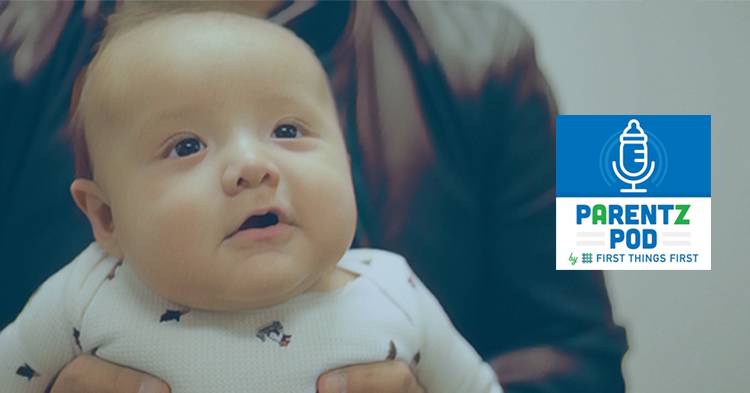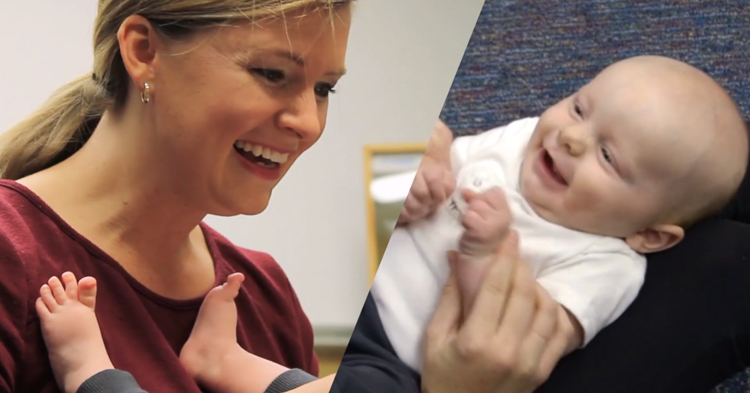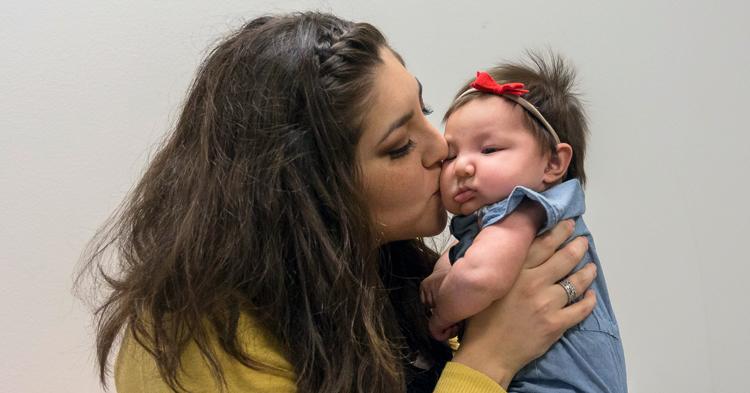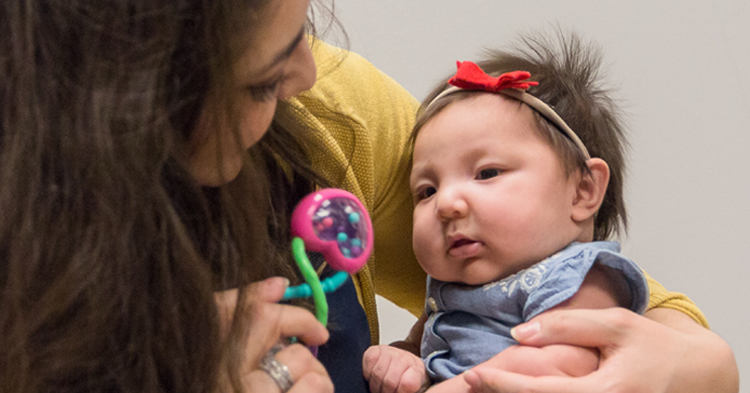Your baby learns more from playing and being with you than from anything else. Babies learn by exploring with their mouths, eyes, ears and hands. Your baby needs things to touch, grasp, push, throw and safely put in her mouth. She needs a calm, safe place so she can play freely and actively.

Playing Is the Way to Teach
Your baby’s brain develops faster in his first year than at any other time. He learns through seeing, touching, hearing, tasting, smelling and moving. He learns through stories, songs, rhymes and games, like peekaboo and patty-cake. When he looks away or fusses, it is time to stop playing. To find out more about how your baby learns, visit Zero to Three or Pathways.
Your Baby Learns Her First Words
Between 6 and 12 months, your baby understands and says simple words. Between 6 and 9 months, she will:
- Respond to her name and look when you call her.
- Understand simple words like “no,” “bye-bye” and “bottle.”
- Babble words like “da da da” and “ma ma ma.”
Between 9 and 12 months, he will:
- Repeat single words and copy animal sounds.
- Point to toys or foods when asked.
- Respond to both soft and loud sounds.

 Story Time
Story Time
Babies love the sounds of words and the sound of your voice. They like cloth, vinyl and board books with simple stories and pictures of things they know. They like to wave their arms and bat the pages. To get books for your child, ask her doctor about Reach Out and Read Arizona.
Your Child’s Development
If you have any worries about how your baby is developing, trust your feelings. For example, if your baby does not crawl or stand with support, or seems too floppy or too stiff, it may be the sign of a problem. If your baby does not smile or repeat sounds by 9 months and babble and gesture with his arms by 12 months, it could be a sign of a development problem. Talk to your doctor right away. There are services to help your baby. Do not be afraid to use them. Getting help early can make a big difference in your baby’s future. Contact the Arizona Early Intervention Program (AzEIP).
THINGS YOU CAN DO
Help Your Baby Learn
- Set aside relaxed time when you can sit on the floor and do what your baby wants to do.
- Make a calm, safe place to play so your baby can explore freely.
- Imitate your baby and let her copy you.
- Let her discover things on her own. Try not to stop her as long as she is safe.
- When she does something you do not like, gently move her or remove the object from her path. This is all the discipline she needs in the first year.
- Talk, read and sing to your baby. Learn more about young children and reading here.
Help Your Baby Sleep Through the Night
Most babies can learn to sleep through the night by 6 months. To help:
- Do not let your baby nap for more than 3 hours during the day.
- Be active with him during the day.
- Make sure he eats enough during the day and before bedtime.
- Have a bedtime ritual such as a bath, a book and a kiss before you turn the lights off.
- If he wakes at night, check on him and help him go back to sleep by himself.
When Your Baby Gets His First Teeth
The first teeth usually start coming in around 6 months of age. Clean them with a soft cloth or baby toothbrush. Use a small amount of fluoride toothpaste. Take him for his first visit with a dentist by his first birthday. For more information, see the Oral Health page in this guide.
The First Things First Parent Kit was developed in partnership with Health Research for Action/UC Berkeley. © 2018 The Regents of the University of California. Additional video, graphic and other content © 2018 First Things First. All rights reserved.





